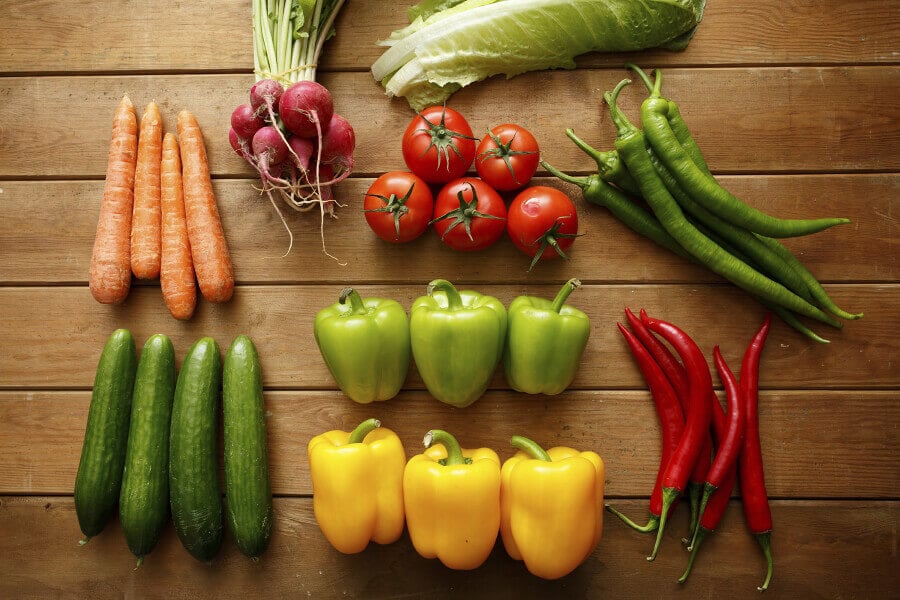Embarking on a vegan lifestyle is an exciting journey towards improved health, environmental sustainability, and compassionate living. Whether you’re considering veganism for the first time or looking to deepen your commitment, having the right tools and information is crucial. This comprehensive guide provides everything you need to get started, including a vegan starter kit, free vegan resources, and a detailed vegan diet guide.
1. Vegan Starter Kit: Essentials for Your New Lifestyle
Starting a vegan lifestyle doesn’t have to be overwhelming. Here’s a list of essential items and tips to help you transition smoothly:
a. Kitchen Staples
Plant-Based Proteins: Stock up on beans, lentils, tofu, tempeh, and chickpeas.
Whole Grains: Include quinoa, brown rice, oats, and barley in your pantry.
Nutritional Yeast: A great source of B-vitamins and adds a cheesy flavor to dishes.
Healthy Fats: Avocados, nuts, seeds, and olive oil are essential for a balanced diet.
b. Cooking Tools
Blender or Food Processor: Perfect for making smoothies, soups, and vegan spreads.
Non-Stick Pans: Reduce the need for excessive oil when cooking.
Measuring Cups and Spoons: Ensure accurate ingredient portions for recipes.
c. Recipe Books and Meal Plans
Invest in a few reputable vegan cookbooks or subscribe to meal planning services to keep your meals varied and nutritious.
d. Supplements
Vitamin B12: Essential for nerve function and not readily available in plant-based foods.
Vitamin D: Especially important in regions with limited sunlight.
Omega-3 Fatty Acids: Consider algae-based supplements for heart and brain health.
2. Free Vegan Resources: Learn and Connect Without Spending a Dime
Accessing reliable information and community support is vital when adopting a vegan lifestyle. Here are some top free resources to guide you:
a. Websites and Blogs
Forks Over Knives (forksoverknives.com): Offers a wealth of plant-based recipes and articles.
The Vegan Society (vegansociety.com): Provides comprehensive guides, research, and news related to veganism.
Oh She Glows (ohsheglows.com): Features delicious and easy-to-follow vegan recipes.
b. Mobile Apps
HappyCow: Helps you find vegan-friendly restaurants and stores worldwide.
Veggie Alternatives: Offers meal planning and recipe ideas tailored to your preferences.
Is It Vegan?: Scans product barcodes to check for vegan-friendly status.
c. Online Communities
Reddit (r/vegan): A supportive community where you can ask questions, share experiences, and find inspiration.
Facebook Groups: Join groups like “Vegan Beginners” or “Plant-Based Recipes” to connect with others on the same journey.
Local Meetups: Websites like Meetup.com often have vegan groups that organize events and gatherings.
d. Educational Platforms
YouTube Channels: Channels like “Pick Up Limes” and “Cheap Lazy Vegan” offer tutorials, recipes, and lifestyle tips.
Podcasts: Listen to shows like “The Rich Roll Podcast” or “Vegan Voices” for interviews and discussions on various vegan topics.
3. Vegan Diet Guide: Ensuring Balanced Nutrition
A well-planned vegan diet can provide all the necessary nutrients for optimal health. Here’s how to ensure you’re meeting your dietary needs:
a. Macronutrients
Protein: Incorporate a variety of plant-based proteins such as beans, lentils, tofu, tempeh, and edamame. Aim for a diverse intake to cover all essential amino acids.
Carbohydrates: Focus on complex carbs like whole grains, vegetables, and fruits to provide sustained energy.
Fats: Include sources of healthy fats like avocados, nuts, seeds, and olive oil to support brain health and hormone production.
b. Micronutrients
Iron: Found in lentils, chickpeas, quinoa, and spinach. Pair with vitamin C-rich foods to enhance absorption.
Calcium: Ensure adequate intake through fortified plant milks, tofu, kale, and almonds.
Vitamin B12: Since it’s not naturally present in plant foods, supplementation or fortified foods are necessary.
Vitamin D: Obtain through sunlight exposure, fortified foods, or supplements, especially in winter months.
Omega-3 Fatty Acids: Include flaxseeds, chia seeds, hemp seeds, and walnuts, or consider algae-based supplements.
c. Meal Planning Tips
Balance Your Plate: Aim for half vegetables, a quarter protein, and a quarter whole grains.
Diverse Diet: Incorporate a wide range of colors and types of vegetables to ensure a variety of nutrients.
Prep in Advance: Prepare meals and snacks ahead of time to avoid reaching for processed vegan options.
Stay Hydrated: Drink plenty of water and include hydrating foods like cucumbers and watermelon in your diet.
d. Common Challenges and Solutions
Eating Out: Use apps like HappyCow to find vegan-friendly restaurants or modify menu items to fit your diet.
Social Situations: Communicate your dietary preferences in advance and bring your own dishes to gatherings if necessary.
Cravings: Satisfy cravings with wholesome vegan alternatives like homemade energy balls or fruit-based desserts.
Transitioning to a vegan lifestyle is a rewarding endeavor that promotes health, environmental stewardship, and compassion towards animals. By equipping yourself with a well-curated vegan starter kit, leveraging free resources, and following a balanced vegan diet guide, you can navigate this journey with confidence and ease. Embrace the vibrant world of plant-based living and enjoy the myriad benefits it has to offer.

